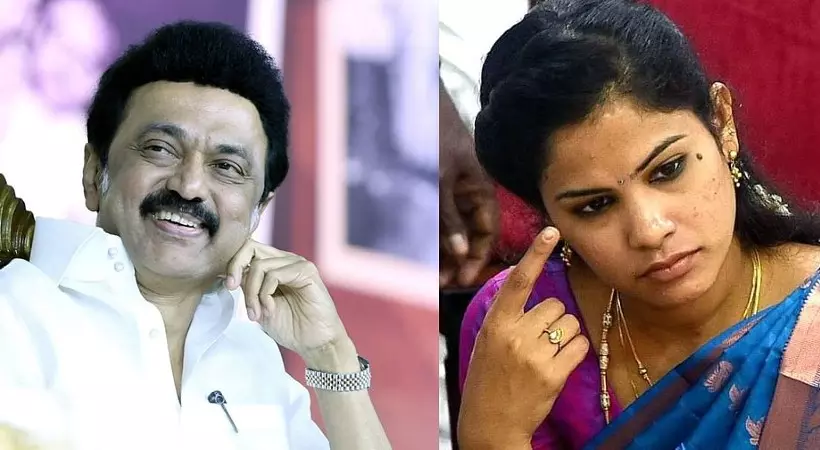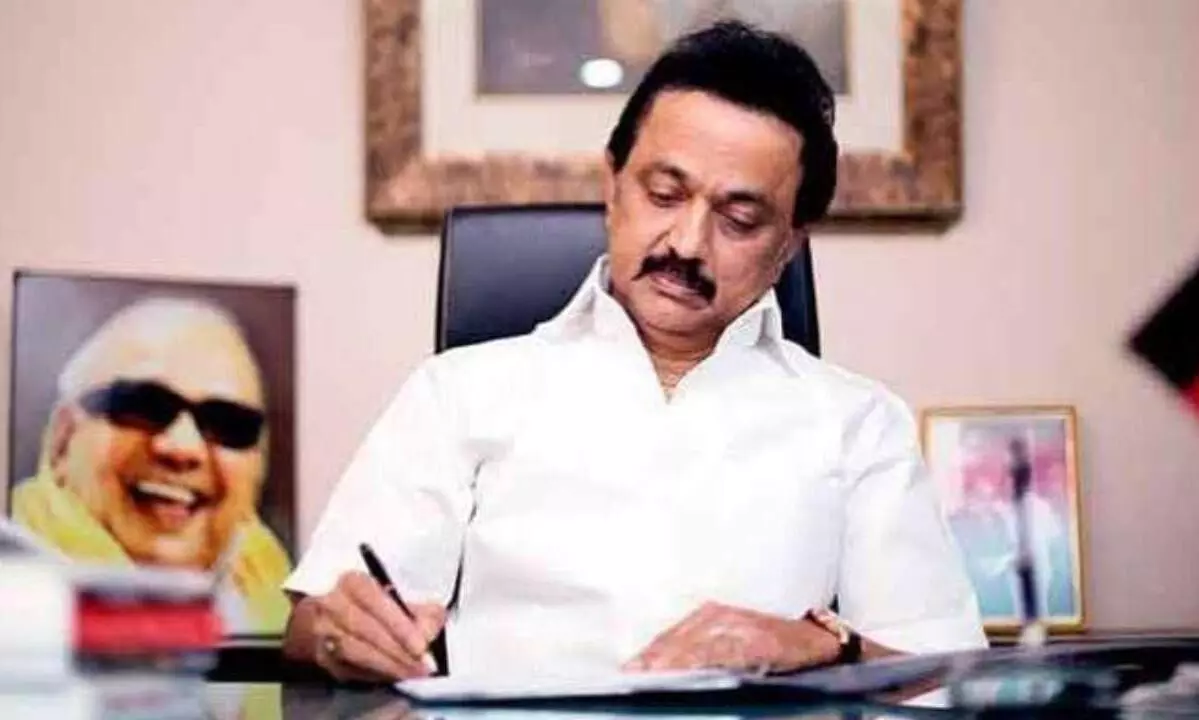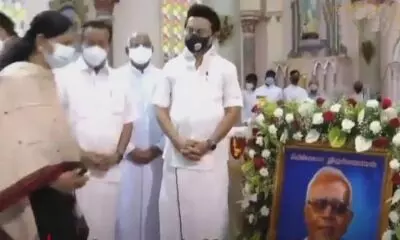
The Dravidian model of Tamil Nadu
text_fieldsFor the first time in the history of the city of Chennai, a Dalit woman, 29-year old R Priya, is getting ready to take charge as Mayor. Hailing from the northern Chennai area of Mangalapuram, a relatively undeveloped part of the city, she is going to occupy a chair that was earlier occupied by the current chief minister Stalin. It is not by any accident or as part of political compromise that the Masters degree holder Dalit woman is stepping in as the chief of a prominent metropolis of the country; instead it is a reflection of the shining and glorious political agenda that recent Dravidian politics of Tamil Nadu has been presenting to the country. And hence chief minister Stalin's terming the striking victory as a popular recognition of the Dravidian model. Therefore, the elevation of R Priya to the Mayoral position has to be seen as a continuation of the social justice drive that has been in action over the last nine months under Stalin's leadership. In the process, he is also conveying a message about what direction the alternative politics against the extreme right-wing politics should take. What facilitated this significant event was the official decision of the Stalin government taken in January, and in the run up to the local bodies election, of reserving the post of Chennai Mayor for Scheduled Caste women.
This outstanding victory also proves that socio-political representation for the diverse sections of the society and commitment to establishment of justice are not merely electoral slogans. This time, after a gap of 10 years, Stalin and his allies, romped home even in the western belt from Namakkal to Coimbatore - which was an AIADMK fortress that had not shaken even as recently as in the last assembly elections - winning 67 per cent seats and 80 percent wards. In this landslide, the DMK captured even the local bodies that lie under the nose of former chief ministers Edappadi K Palaniswamy and O Panneerselvam. Stalin government's steps such as the decision to take action against 20 pujaris of a temple in Chidambaram for denying entry to a Dalit girl, filing case against the guilty under the SC/ST law and of applying reservation in the local body elections, convinced the people that Stalin's Dravidian model was not mere verbal gimmick.
Stalin was also able to integrate the lessen of federalism and the Tamil identity and thus win people's support through stances on the NEET examinations and in several other issues including that of language in the Centre's educational reforms. In the press conference after the results of the local bodies election, Stalin went on record that the credit of the victory was also due to the alliance parties and exhorted the followers to remain humble in triumph while celebrating victory. Thanks to the increase of seats won, the main allies of the DMK, the Congress, CPM, CPI and Muslim League all certainly relish the result as a sweet victory. But when Stalin portrayed the victory as a success of secularism and emphasised that the DMK-led alliance was reinforced through ideological commitments, he made every one except the BJP a part of the progressive, secular front. It is promising that in Tamil Nadu, under the leadership of the DMK, the Congress, the CPM, Muslim League, Makkal Viduthalai Party, the political form of Tamil Nadu Munnetta Kazhakam and Viduthalai Chiruthaigal Katchi are all standing together. This is sure to give Stalin the image of a credible leader against the radical right wing politics both within and outside Tamil Nadu and as a political figure who gives due regard to alliance partners, an image reinforced by this election.
In neighbouring state of Kerala, in the background of some rival parties who fight keenly against one another in the state, rallying as one alliance in Tamil Nadu, the political experiments in Tamil Nadu need to be taken seriously by Kerala units of the parties. Be it the issue of reservation, the hijab controversy or the legislative moves against caste discrimination, when Tamil Nadu is able to lend strength to the political and social representation of different sections, to the struggle for equal opportunities and cultural and social resistance against the virus of hate politics, every one should ponder why that fails to materialise in Kerala. If only the political parties realise that the local poll results of Tamil Nadu and the accession of R Priya to Mayoral office constitute an engine for social transformations, the socio-political map of Kerala will undoubtedly see a reform.


























